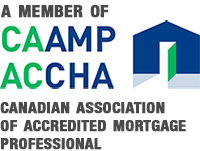


JESSE BRUN
Mortgage IntelligenceLicense #10428
Mortgage Broker (NB)
Mortgage Agent Level 2 (ON)

Alternative Construction Lending Companies Oakville
As the city of Oakville continues to expand, many home builders and home developers are looking for alternative construction lending companies to finance their projects since traditional banks have strict guidelines compared to alternative construction lending companies. In this article, we will take at how alternative construction lending companies in Oakville can help you finance your next construction project.
Alternative construction lending companies in Oakville
Alternative construction lending companies are also known as private construction lenders. Not all private lenders specialize in construction lending but some do. Most private lenders will work with reputable mortgage agents that help with the construction lending process. The construction lending is typically broken down into several disbursements, which are made at specific stages of the construction process. There are a few alternative construction lending companies (private construction lenders) in Oakville.
Why choose our mortgage office in order to get construction financing from the best private construction lending companies?
If you are tired of dealing with banks and not getting the financing support you need, we work with the best construction lenders in Oakville. Our construction lenders in Oakville are competitive and they support many home builders and developers. Our lenders also have advanced methods to quickly fast-track the approval process. As a bonus, our lenders do not have any credit score, income, or presale requirements.
If your project is denied financial support by the bank or if you want to complete more projects faster, we are at your service to help you. Call (888)878-4660 and chat with us for an expert opinion about your project.
We are confident that when you connect with us, we can help to remove all headaches and hassles to get you the money to start your construction or development project as soon as possible. If you have money problems for your profitable projects, we have solutions.
Feel free to visit our construction lending website which shows in more details our private construction lender solutions for home builders and developers in Oakville. The website is: www.ezconstructioncapital.com
Our mortgage office specializes in providing bad credit construction loans in Oakville. We have years of experience working with individuals who have bad credit, and we understand the challenges that you may be facing.
When you choose our mortgage office for your bad credit construction loan, you can expect:
- Flexible eligibility requirements
- Fast construction approvals
- Expert advice& guidance
- Personalized service
- Experience construction mortgage agent
One of the main advantages of alternative construction lending is that it offers more flexibility than traditional lending. Traditional lenders often have strict criteria for loan approval, such as minimum credit scores and income requirements, that may exclude some borrowers from obtaining financing. Alternative lenders, on the other hand, offer more flexible loan products that can meet a wider range of financing needs.
Alternative construction lending can also offer faster approval and funding times than traditional lending. This is because alternative lenders often have streamlined underwriting processes that allow them to make lending decisions quickly. In addition, alternative lenders may be more willing to work with borrowers who have less-than-perfect credit, which can be a major advantage for borrowers who have been turned down by traditional lenders.
Below is a list of words that are associated with getting a construction loan. We are providing you the list along with their definitions to help you in your construction journey:
Certificate of occupancy: a document issued by a local government agency that certifies that a newly constructed building meets all local building codes and is safe for occupancy.
Construction contract: a legal agreement between a property owner and a contractor that outlines the terms and conditions of a construction project.
Disbursement: the process of releasing funds from a construction loan to pay for materials, labor, and other expenses.
Contingency fund: a reserve of money set aside to cover unexpected expenses that may arise during the construction process.
Loan-to-value ratio: a comparison of the amount of money borrowed to the value of the property being purchased.
Interest-only loan: a type of loan in which the borrower only pays interest for a set period of time, with the principal due at the end of the loan term.
Balloon payment: a large, one-time payment due at the end of a loan term, typically used in conjunction with interest-only loans or other non-traditional mortgage products.
Loan servicing: the process of collecting loan payments, managing escrow accounts, and other administrative tasks related to mortgage loans.
Certificate of substantial completion: a document issued by a project manager or inspector that certifies that a construction project has been completed to a certain degree.
Construction lien waiver: a document signed by a contractor or subcontractor that waives their right to file a lien against a property in exchange for payment for their services.
Change order: a written document that outlines any changes to the original scope of a construction project, typically used to update project plans and budgets.
Punch list: a list of final tasks that need to be completed before a construction project can be considered fully finished.
Mechanics lien: a legal claim filed by a contractor or subcontractor against a property owner who has not paid for their services.
Retainage: a portion of a construction payment that is withheld until the project is complete, typically used as a form of security against any potential defects or delays.
Surety bond: a type of insurance that guarantees that a construction project will be completed according to the terms of a contract.
Construction loan: a short-term loan used to finance the construction of a new home or other real estate project.
Draw schedule: a timeline of when and how much money will be disbursed during the construction process, usually based on certain milestones being met.
Appraisal: an estimate of the value of a property, typically done by a professional appraiser.
Title insurance: insurance that protects the lender and/or the homeowner against any title defects or disputes that may arise.
Inspection: a process in which a professional inspector examines a property to ensure that it meets all relevant safety codes and standards.
Closing disclosure: a document that outlines the final terms of a mortgage loan, including the interest rate, closing costs, and other fees.
Closing costs: the fees associated with finalizing a mortgage or real estate transaction, including things like appraisal fees, title insurance, and attorney fees.
Lien: a legal claim against a property, usually filed by a creditor who is owed money by the property owner.


